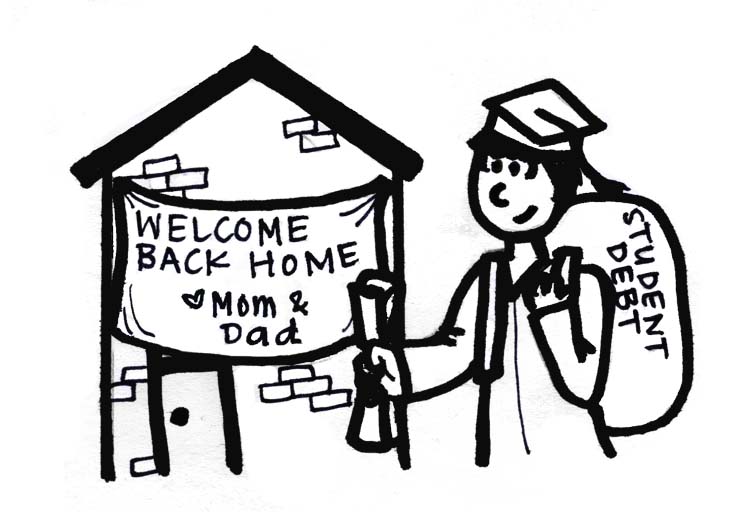There was a time when the mention of moving back home after graduation immediately conjured up images of a grungy couch-potato who would rather watch television in his pajamas all day than get up and apply for a job.
However, as a result of the economic downturn in recent years, moving back home after the age of 22 has become an increasingly common and accepted occurrence. In a recent report, the Pew Research Center named our generation the “boomerang generation,” due to the fact that almost a third of people aged 25-34 have left home, only to move back again out of economic necessity.
In light of these findings and the high unemployment rate, we need to shake off the stigma that has long been attached to the idea of moving back home. There have been times, during greater economic prosperity, when staying at home was a mark of laziness and a desire to live off of mom and dad as long as possible. However, in today’s economy, even the most qualified college graduates often struggle to secure a job that will pay the rent along with other expenses.
We should also dispel the image of the lazy, television-watching mooch. Many young adults who live at home spend their time applying for jobs or working at a lower-paying job until they save up enough money to move out. According to the Pew Report, almost half of young adults living at home even pay rent to their parents.
Another factor to consider is the sociological shift that began a few decades ago and has been increasing ever since: Relations between young adults and their parents are more intimate and equal than they once were. The generation gap began to dissolve in the 1960s and ’70s when college students began having a more active voice in national affairs. This progression has been fueled by the shrinking family size and greater leisure time that have characterized the last few decades. As a result, parents now behave as companions toward their kids rather than as authority figures. So today, when we come home after college, living with our parents resembles a roommate relationship. We are no longer simply financial burdens in need of a caretaker.
The term “boomerang” is not exactly accurate because it implies that we are returning home in the exact state in which we left it. This is not quite true: Whatever experiences we have had in between leaving and returning — be it graduating college, applying for jobs, or briefly entering the real world — we come home a little bit older, a little bit more experienced and a little bit closer to being equals with our parents.



































